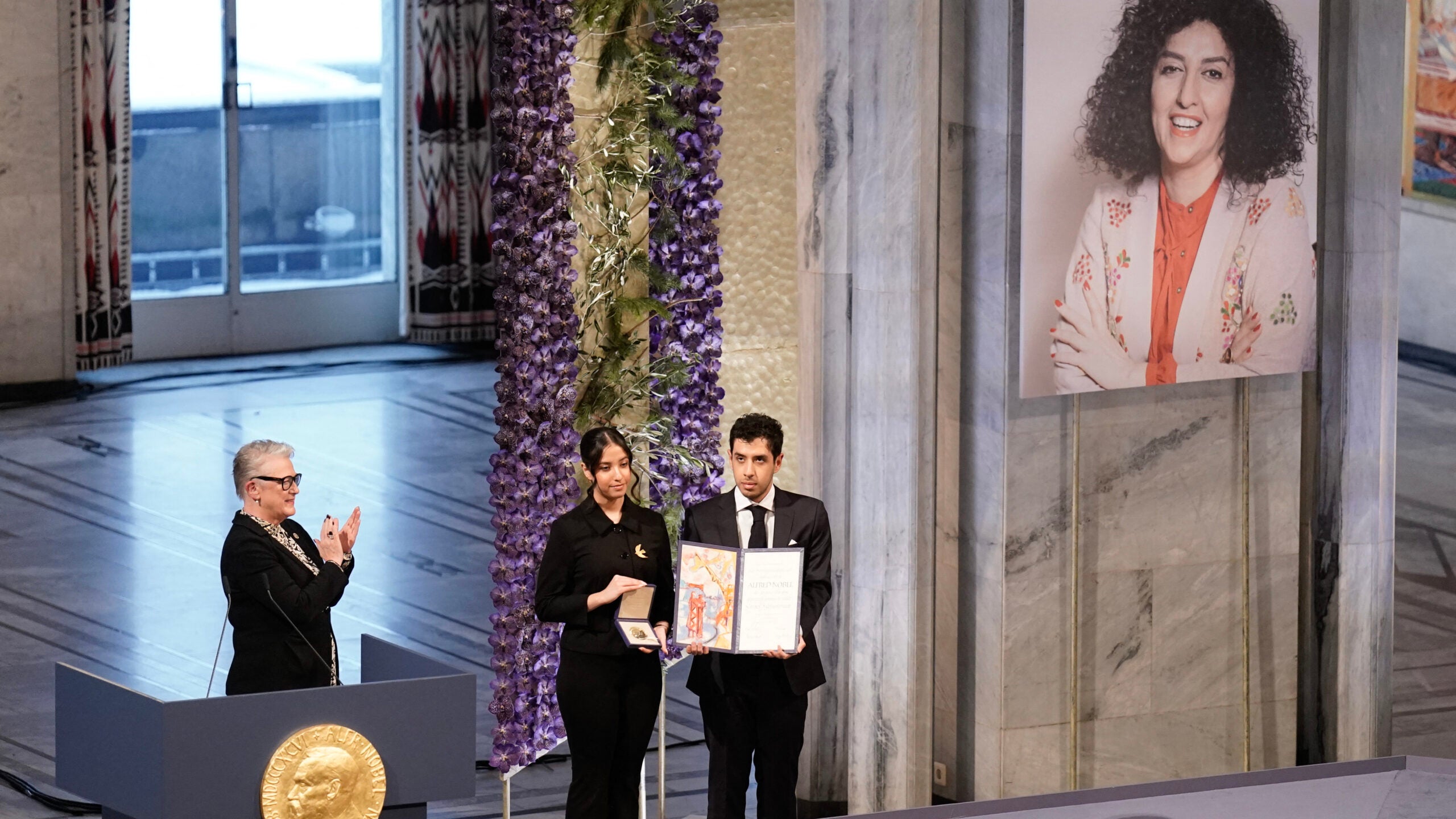Typically, the winner of the Nobel Peace Prize gives their acceptance lecture at the awards ceremony in Oslo, Norway – but this year’s recipient, Narges Mohammadi, couldn’t. She remains behind bars for her long-time human rights work advocating for women’s rights and democracy in Iran.
So, at Sunday’s ceremony, she was represented by her twin 17-year-old children — Ali and Kiana Rahmani— who delivered the speech on her behalf.
“I write this message from behind the high, cold walls of a prison,” they read. “I am an Iranian woman, a proud and honorable contributor to civilization, who is currently under the oppression of a despotic religious government.”
Stay informed on the latest news
Sign up for WPR’s email newsletter.
In the wake of the 2022 death of Mahsa (Jina) Amini, a 22-year-old who died while in custody of Iran’s morality police, thousands of Iranians inside the country and around the world took to the streets in protest. Such protests have since escalated into calls for regime change. Mohammadi — who is vice president of the Defenders of Human Rights Center — has long campaigned against the death penalty of protestors, even while serving multiple sentences.
In her speech, Mohammadi paid tribute to those protestors, stating that she is just one of “millions of proud and resilient Iranian women who have risen up against oppression, repression, discrimination, and tyranny.”
The prize was awarded to Mohammadi “for her fight against the oppression of women in Iran and her fight to promote human rights and freedom for all,” according to this year’s announcement by Berit Reiss-Andersen, Chair of the Norwegian Nobel Committee.
“Her brave struggle has come with tremendous personal cost,” Reiss-Andersen said.
Mohammadi has been arrested by the Iranian regime 13 times, convicted five times, and sentenced to a total of 31 years in prison and 154 lashes for charges of “spreading anti-state propaganda,” according to the committee.
Mohammadi has been arrested by the Iranian regime 13 times, convicted five times, and sentenced to a total of 31 years in prison and 154 lashes for charges of “spreading anti-state propaganda,” according to the committee.
In her closing thoughts, Mohammadi wrote she was confident “that the light of freedom and justice will shine brightly on the land of Iran. At that moment, we will celebrate the victory of democracy and human rights over tyranny and authoritarianism, and the anthem of the people’s triumph on the streets of Iran will resonate worldwide.” The speech was met with a standing ovation.
Mohammadi is the second Nobel Peace Prize recipient from Iran, after her mentor and colleague Shirin Ebadi, who won in 2003 and was in attendance at the ceremony.
9(MDAyMjQ1NTA4MDEyMjU5MTk3OTdlZmMzMQ004))
© Copyright 2025 by NPR. To see more, visit https://www.npr.org.9(MDAyMjQ1NTA4MDEyMjU5MTk3OTdlZmMzMQ004))
